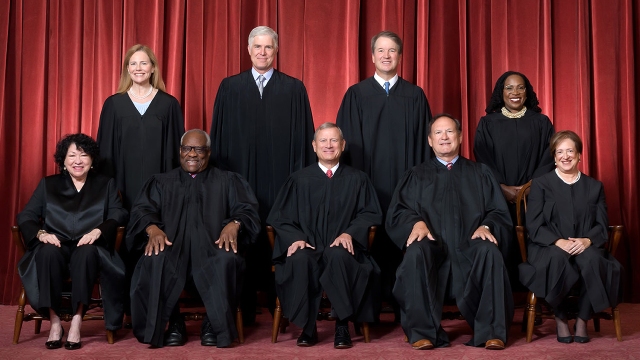Growing share of Americans see the Supreme Court as ‘friendly … – Pew Research Center
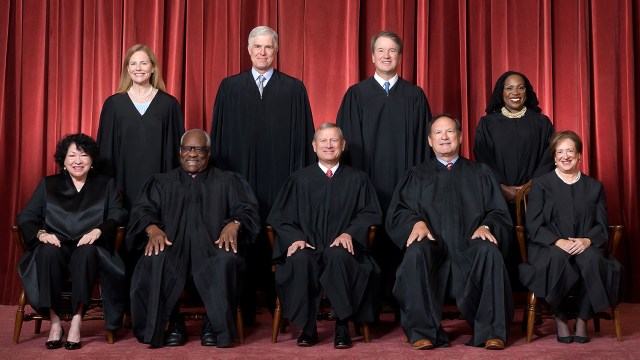
As the Supreme Court prepares to consider whether a Christian web designer can refuse to make websites for same-sex weddings because of her religious beliefs, a September Pew Research Center survey shows a jump in the share of U.S. adults who see the Supreme Court as “friendly” toward religion.
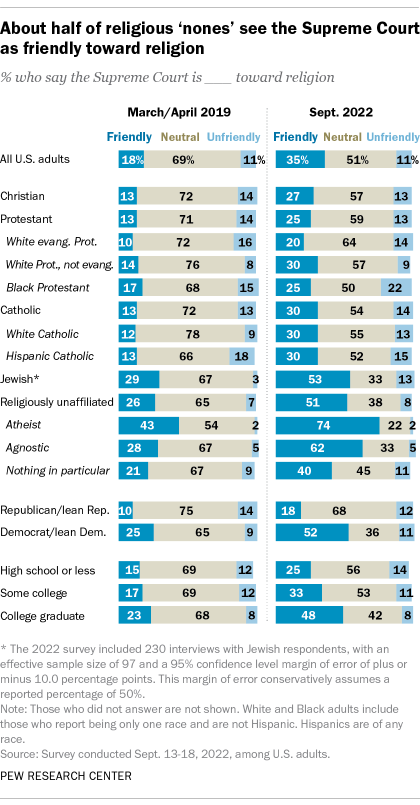
About a third of Americans (35%) now see the high court as friendly toward religion – nearly double the share who said this in a Center survey conducted in March and April of 2019 (18%). This increase follows a 2021-22 Supreme Court term that produced several decisions with implications for religion: the Dobbs v. Jackson Women’s Health Organization case that ended the constitutional right to abortion; a ruling that favored a high school football coach who led Christian prayers after games; and another decision that allowed public funding for private religious schools.
Although growing shares across a range of religious and demographic groups say the court is friendly toward faith, groups vary in the extent to which they feel this way. About half of religiously unaffiliated (51%) and Jewish (53%) adults in the new survey say they believe the court is friendly toward religion, while a much smaller share of Christians (27%) say the same. Self-described atheists are especially likely to view the Supreme Court as friendly toward religion: 74% now say this, up sharply from 43% a few years ago. A majority of Christians (57%), meanwhile, say the Supreme Court is neutral toward religion.
How we did this
Pew Research Center conducted this survey to explore Americans’ attitudes about religion’s role in the Supreme Court. For this study, we surveyed 10,588 U.S. adults from Sept. 13-18, 2022. All respondents to the survey are part of Pew Research Center’s American Trends Panel (ATP), an online survey panel that is recruited through national random sampling of residential addresses. This way nearly all U.S. adults have a chance of selection. The survey is weighted to be representative of the U.S. adult population by gender, race, ethnicity, partisan affiliation, education, religious affiliation and other categories. For more, read the ATP’s methodology.
Here are the questions used in this study, along with responses, and its methodology.
There is also a substantial gap by political party: About half of Democrats and independents who lean Democratic (52%) say the high court is friendly toward religion, compared with 18% of Republicans and GOP leaners. When it comes to education, roughly half of those with a bachelor’s degree or more schooling (48%) say the court is friendly toward religion, compared with smaller shares of those without a bachelor’s degree.
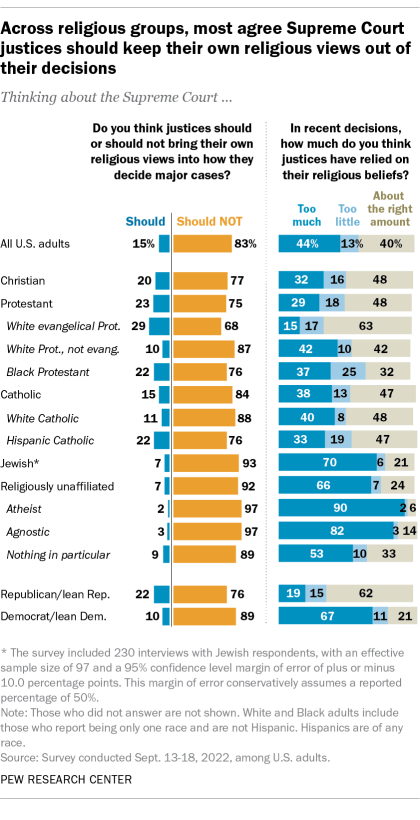
The vast majority of Americans (83%) say Supreme Court justices should not bring their own religious views into how they decide cases, and 44% say the justices have been doing this too much in recent decisions. Seven-in-ten U.S. Jews and two-thirds of religiously unaffiliated Americans (66%) say this has been happening too often. (The Supreme Court is currently made up of six Catholic justices, two Protestants and one Jewish justice: Elena Kagan.)
The Center survey also asked respondents whether they think recent Supreme Court decisions have helped, harmed or not made much of a difference to several groups, including Christians, nonreligious people, and lesbian, gay or bisexual (LGB) Americans.
Overall, most Americans believe that recent decisions have either helped (42%) or not made a difference (40%) for the interests of Christians. About a third of Christians (35%) – including similar shares of Catholics, White evangelical Protestants and White non-evangelical Protestants – believe the recent court decisions have helped Christians’ interests. By contrast, larger shares of Jewish (58%) and religiously unaffiliated (55%) adults – including about three-quarters of atheists (77%) and agnostics (73%) – say the same.
About three-in-ten U.S. adults (31%) believe that recent Supreme Court decisions have hurt the interests of people who are not religious, compared with just 11% who say recent decisions have helped this group. There are striking differences along partisan and religious lines: Nearly half of Democrats (48%) say the interests of the nonreligious have been hurt by recent decisions, compared with 14% of Republicans who say the same. Likewise, 47% of religiously unaffiliated Americans believe the interests of nonreligious adults have been harmed by recent decisions, compared with 23% of Christians who say this.
Similarly, Americans overall are more likely to say the interests of LGB people have been hurt (37%) rather than helped (22%) by recent Supreme Court decisions. Among U.S. adults who identify as lesbian, gay or bisexual, 69% say LGB Americans have been hurt by recent decisions.
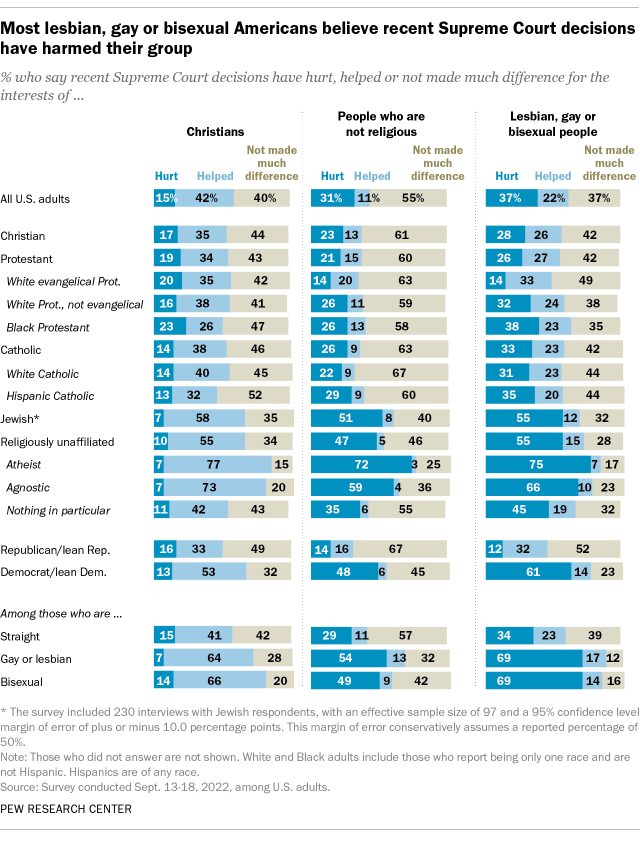
Note: Here are the questions used in this study, along with responses, and its methodology.
